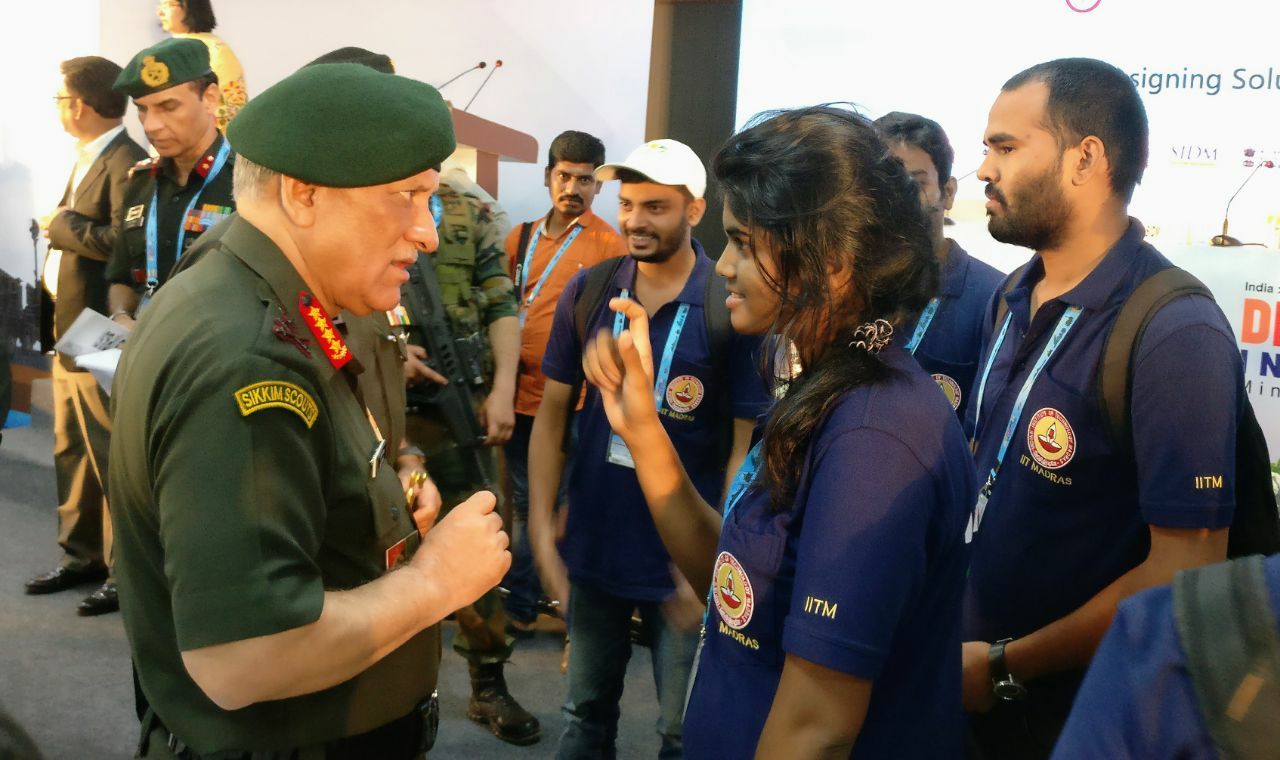Academic institutions of international repute like the IITs should be partners in producing cutting-edge military technologies
by Lt Gen P R Shankar Retd
By 2030, India’s doorstep adversaries will be a hi-tech, world-dominating China and its toxic cat’s paw Pakistan. Let’s face it. Militarily, India’s import dependence for defence equipment will not reduce by then because
Make in India has already missed its mark. For reasons well-known, indigenous defence industry has not delivered. Now, after the
controversy over the Rafale fighter jet deal, our defence import and procurement procedures will inevitably decelerate.
Need outcome-oriented efforts
Our talent and potential have been showcased to the world by Sundar Pichais and Satya Nadellas and many more who are powering companies such as Microsoft, Google, Apple and Amazon. It is now time to create talent that can be used for India’s defence indigenisation. Despite a realisation in the government and military circles, the academic path to indigenisation remains hazy.
The faculty at IIT Madras is evolving a model that must be nurtured and replicated. In January 2018, a course on ‘Overview of Defence Technologies’ was introduced at IIT Madras as an elective. In each semester, since then, over 100 PhD, M.Tech, MS and B.Tech students across disciplines enrolled in the course. They got practical exposure by
attending DefExpo, visiting Indian Navy ships, L&T shipyard, and Officers Training Academy, Chennai. Students interacted with defence officers, scientists and the industry, including the defence minister and chief of the Army staff.
Students want to contribute to the domestic defence industry and, in response, the ministry of defence and the armed forces have started an outreach programme with the IIT. However, their approach needs focus and must go beyond exploratory, superficial, tick-the-box efforts. It must be outcome-oriented and not incremental.
Contrast this with China, which has over 2,500 military scientists/engineers studying defence technologies abroad, including navigation technology, computer science, artificial intelligence, hypersonic scramjets, and high-energy lasers.
In a
recent article, China expert Claude Arpi wrote about how Australia, Canada, New Zealand, UK, US, Germany and Singapore are virtually sponsoring China’s defence researches.
Exposure To Defence Issues
India must make courses like the ‘Overview of Defence Technologies’ an elective across all IITs and other technical institutes. Select IITs/IISc should run MTech courses with specialisation in defence technologies like the UK’s
Cranfield University does. In addition, we also need MTech/MBA programmes to cover subjects like defence procurement. We must graduate to PhD programmes on niche defence-related technologies.
IIT Madras team interacting with Army Chief Bipin Rawat
Over 200-250 armed forces’ officers do MTech courses in IITs on regular subjects at any given time. This framework can easily be tweaked to focus on defence technology and procurement and will result in tremendous payoffs.
There is no alternative to knowledge superiority. Academic partnerships, linkages and exchange programmes should be developed between selected institutions and schools of instruction of the armed forces. Our young scientific and engineering minds need exposure to defence issues through seminars and events like Aero India and DefExpo. Our IITians
participate in Mars Rover and Hyperloop competitions internationally. Similarly, defence-related competitions should be held routinely at tech fests in India to unearth talent and ideas. In, addition, they should be made to take up internships at defence institutions.
Benefits for future
Select academic institutions should undertake projects in blue sky research and develop technologies/products for import substitution/upgradation. These projects could be in standalone mode or in conjunction with the Defence Research and Development Organisation (DRDO), Ordnance Factories Board (OFB) or Defence Public Sector Undertakings (DPSUs).
Our academic institutions of international repute can no more be treated as appendages or competitors in defence research and production. They should instead be partners for producing cutting-edge military technologies.
IITs have tremendous research expertise. For example at IIT Madras alone,
ISRO (since 1990), Railways (since 2017), DRDO (since 2012) and Indira Gandhi Centre for Atomic Research have established centres for
joint research. Nearly
200 MoUs exist with the industry for sponsored research, focused academic programmes, and consultancy. In the same vein, Services should establish dedicated research centres and run exclusive programmes in select IITs based on their expertise.
Indian Navy has an MoU with IIT Delhi since
1978 and has benefited immensely in naval construction. Other Services should follow this lead. A comprehensive pilot programme can build on the initiatives of IIT Madras. Without focus, we will be all over the place and end up nowhere.
Finally, I got a call recently from someone in Ernst and Young who wanted to consult us on their plan for the southern
defence corridor. Just imagine. MoD consults someone for the defence corridor who, in turn, consults IIT Madras. Round tripping? The MoD might as well come to IIT Madras directly. Old habits die hard, I suppose.
The author is professor, Aerospace Dept, IIT Madras



